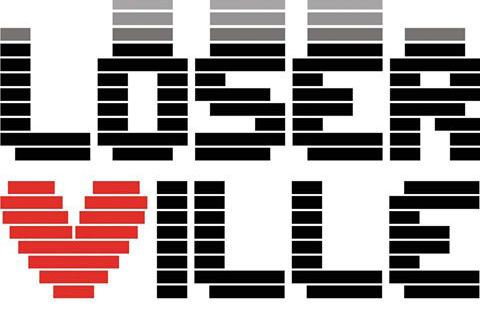@ Church Hill Theatre, Edinburgh, until Sat 24 Oct 2015
Long gone are the days when geekiness was considered prosy and humdrum. Nowadays, when people like Mark Zuckerberg and Steve Jobs are enjoying superhero status, nerdy geniuses who used to be mere wallflowers are gradually finding their place in the spotlight.
The main characters of Eliot Davis and James Bourne‘s musical Loserville, presented by amateur musical theatre society Allegro and directed by Andy Johnston, are quite the nerdy kind of teenagers – computer geeks in an American town in 1971 who are about to change the world, despite their inability to fit in and the harrassment of the narcissistic cool guys who confront them in school. On their way to the big breakthrough, Michael (Matt McDonagh), Holly (Rachel Aedy) and their friends also have to deal with first love thrills, tests of their friendship, and failures.
Undoubtedly, the attractiveness of Davis and Bourne‘s musical owes some credit to the popularity of The Big Bang Theory, which made the portrait of the geeky misfit more appealing and fun than it has ever been. However, due to the sitcom’s success, there is not a side of the nerds‘ lives that we haven’t seen already. The social anxiety, the lack of understanding of their genius, the inability to communicate with girls, the obsession over Star Trek, comic books and sci-fi conventions all sound almost irritatingly familiar, not to mention that one of the main character’s titters sounds exactly like Sheldon Cooper.
However, the two female nerdies in Loserville are much more interesting and make up for the lack of originality of their male counterparts. The main lead Holly and the undercover genius Samantha (Michaela Turner) both have some hidden features that bring freshness and unexpected plot twists to the story. In addition, they boast some great voices and impressive stage presence.
Altogether, the experienced amateur cast demonstrate pretty good acting, dancing and singing skills, regardless of the issues with the PA which forces the performers to struggle to be heard over the music. The songs infatuate, with catchy lyrics and a contemporary pop-punk sound, which well suits the high school setting. Some of the musical numbers impress with clever corresponding choreography, such as the scenes at the Planetarium and the transformations of the human keyboard during Living In The Future Now.
The show provides an amusing and unexpected contemporary angle to some groundbreaking events from the recent past, such as the sending of the first ever email, or the emerging concept of Star Wars, backed with some hilarious puns and references. As well as that, it effectively implies the trite, but always valid, messages that looks are not everything and that you should always stay true to yourself, along with the edifying moral that those who slack are the real losers.
